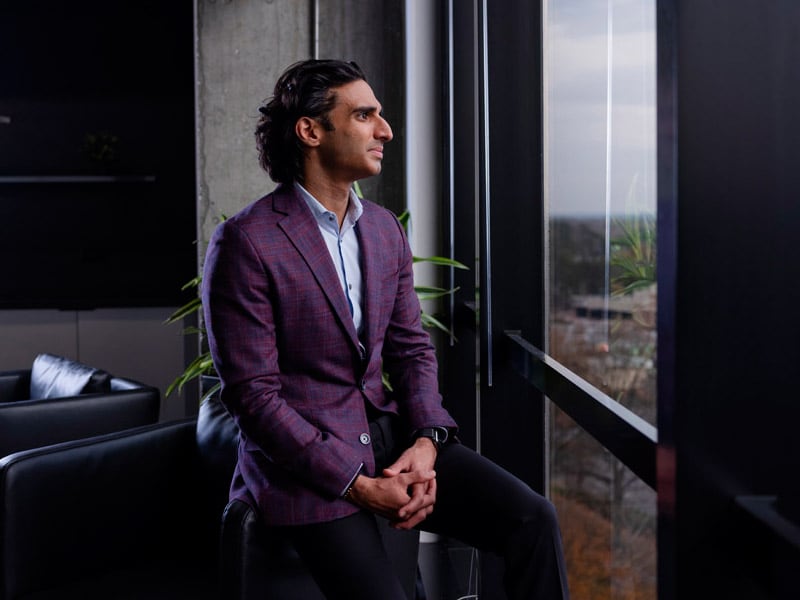
The companies benefiting from fragmenting internet privacy rules
In an attempt to rein in tech giants such as Facebook and Google, governments around the world in recent years have approved new laws governing how websites must handle consumer data, treat their competitors and protect young people
 Kabir Bardy, CEO of OneTrust, at the company’s headquarters in Sandy Springs, Ga., Dec. 9, 2021. “Capitalism and commercial interest is not at odds with doing good for the world,” Bardy said. (David Walter Banks/The New York Times)
Kabir Bardy, CEO of OneTrust, at the company’s headquarters in Sandy Springs, Ga., Dec. 9, 2021. “Capitalism and commercial interest is not at odds with doing good for the world,” Bardy said. (David Walter Banks/The New York Times)
SANDY SPRINGS, Ga. — In 2018, California lawmakers mandated that consumers be able to request their personal data from companies through a toll-free number. And then a group of lawyers, engineers and salespeople for a company in Atlanta got to work.
The company, a startup called OneTrust, now based in a suburb on the city’s outskirts, makes software for businesses trying to stay on the right side of the growing number of internet regulations. In response to the new California law, OneTrust made it easy for companies to set up a number to manage the requests.
In an attempt to rein in tech giants such as Facebook and Google, governments around the world in recent years have approved new laws governing how websites must handle consumer data, treat their competitors and protect young people. The European Union has a data-privacy law that governs the entire bloc. California has approved two privacy measures in recent years, and other states have followed suit.
Out of those regulations has arisen something else: an industry to help companies navigate the increasingly fragmented rules of the global internet.
It’s a booming market. OneTrust, a leader in the field, has been valued by investors at $5.3 billion. BigID, a competitor, raised $30 million in April at a $1.25 billion valuation. Another company that targets privacy regulations, TrustArc, raised $70 million in 2019. Yoti, a startup that provides the kind of age-verification services that regulators are increasingly turning to to shield children from harmful content, has raised millions of dollars since it was founded in 2014.
©2019 New York Times News Service







